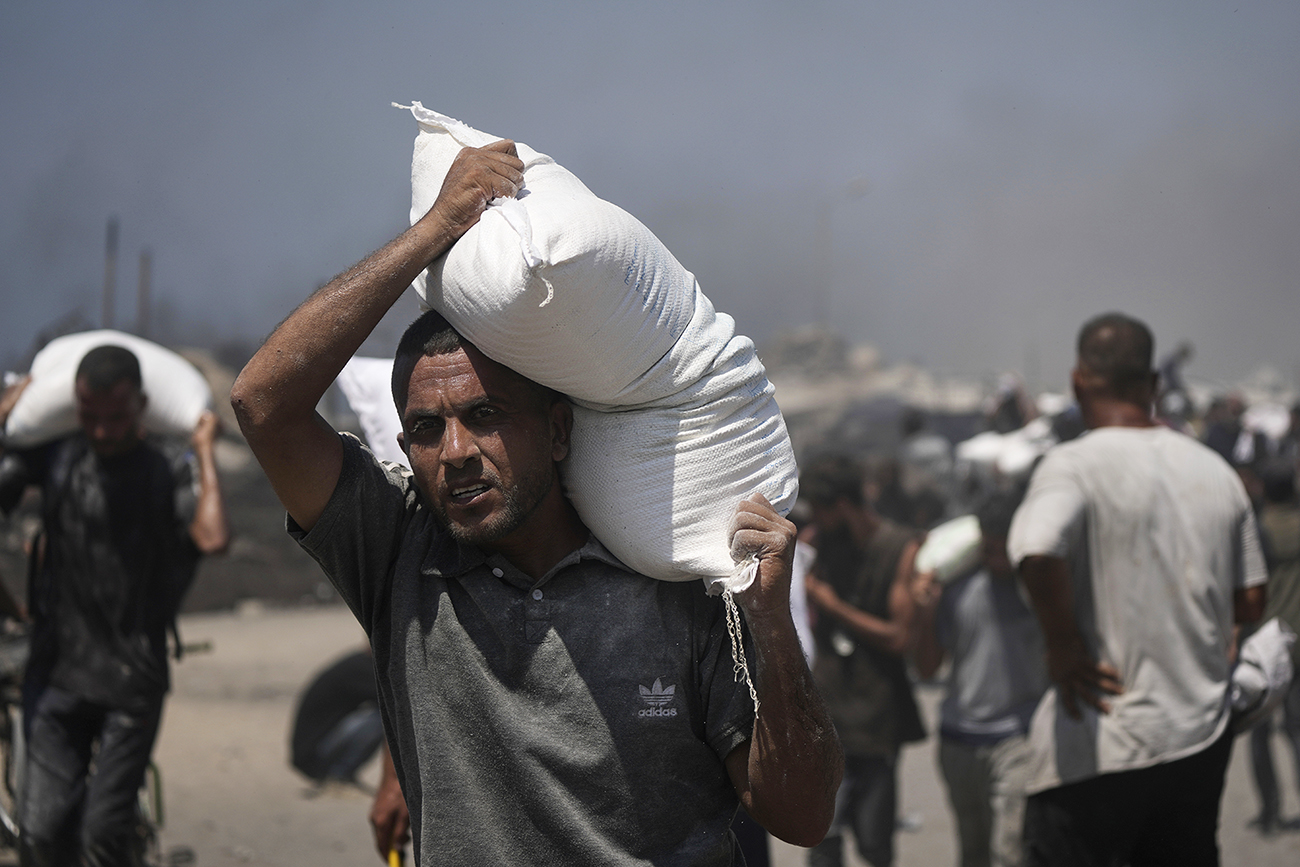UPDATE: The humanitarian crisis in Gaza is escalating as officials warn that the region is on the brink of a devastating famine. With 2 million people facing starvation, immediate action is needed to prevent a catastrophe.
As of October 2023, the situation in Gaza is dire. The World Food Program reports that one-third of the population has gone days without food, and small children are dying from starvation at an alarming rate. This is not merely a natural disaster; it is a man-made crisis resulting from ongoing conflict and blockades.
In the wake of the attack on Israeli civilians on October 7, 2023, and subsequent military actions, humanitarian aid has been severely restricted. The Israeli government claims it is making efforts to feed Palestinians, but reports indicate that aid convoys are regularly looted, making food distribution dangerous and ineffective.
The Gaza Humanitarian Foundation, an Israeli-backed aid group, has proposed a new plan to mitigate the crisis. However, challenges remain profound. Food cannot flow quickly enough to meet the urgent needs of the population, and current distribution methods are proving inadequate.
Cindy McCain, executive director of the World Food Program, emphasized the urgency of the situation last week, stating, “One-third of Gaza’s population has not eaten for multiple days in a row.” The need for immediate humanitarian corridors to facilitate aid is critical.
The World Central Kitchen, founded by chef José Andrés, is currently cooking tens of thousands of meals daily but faces ongoing shortages. Since the conflict began, they have prepared and distributed over 133 million meals in Gaza. Despite their resilience, the organization has had to pause cooking operations multiple times due to a lack of ingredients.
The blockade initiated in March has compounded the crisis, leading to increased violence and chaos. Aid groups have called for immediate changes to how food is provided, including the establishment of safe distribution channels that circumvent violence. The proposal outlines the need for one million meals to be prepared daily in secure locations, ensuring that food reaches those in desperate need without risking their safety.
As the Jewish fast of Tisha B’Av approaches, a day of mourning and reflection, the moral imperative to act grows stronger. The teachings of Isaiah remind us that true fasting involves sharing resources with the hungry.
CALL TO ACTION: The world cannot afford to stand by. It is time for immediate, coordinated efforts to ensure that aid reaches the starving populations in Gaza. Activists, governments, and organizations must rally together to provide the necessary support and save lives. Lives are at stake, and the immediate future of millions hangs in the balance.
The time for action is now—before it is too late.







































































